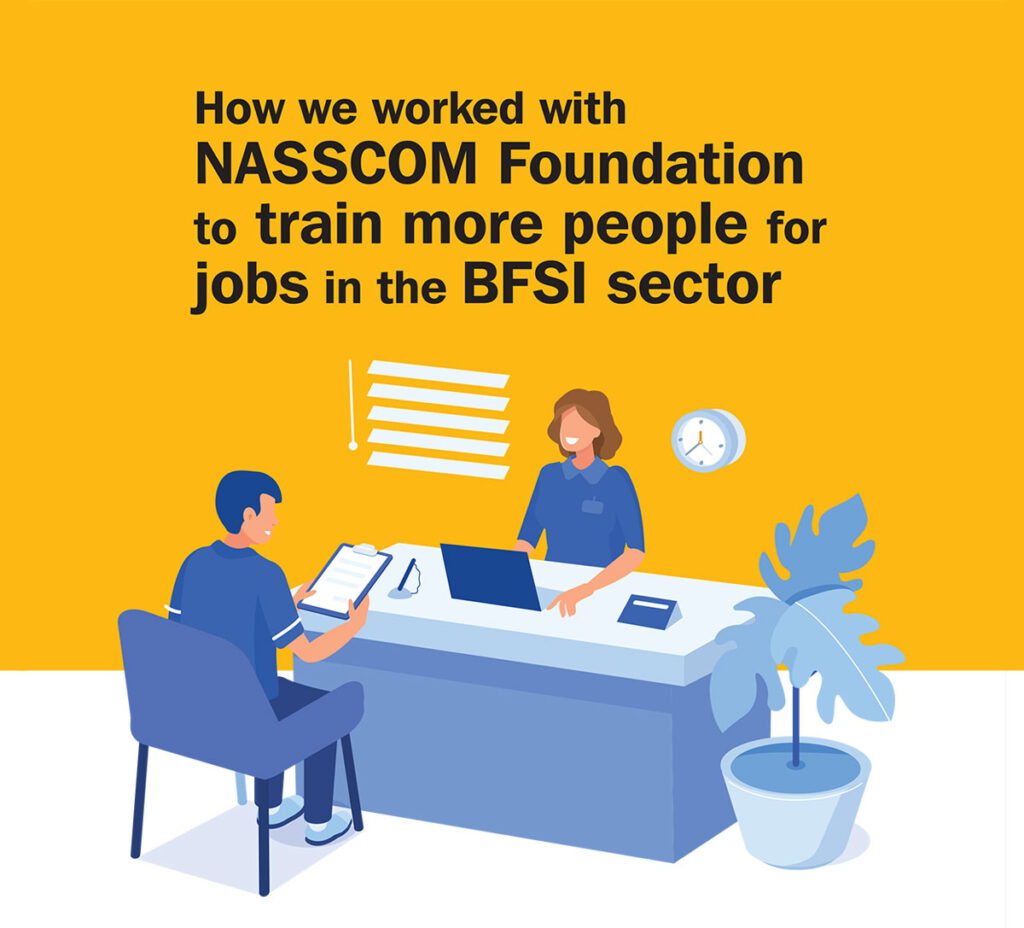
How we worked with NASSCOM Foundation to train more people for jobs in the BFSI sector

Synopsis:
Banking, Insurance, and Financial Services are major drivers of growth in the service sector and also are a great source of employment. Many opportunities are available at entry-level in the sector across job domains like sales, customer service, operations, etc.
However, skilled manpower is not available and the opportunity exists in upskilling graduates from underprivileged sections of the society. TMI was the partner in a NASSCOM Foundation program to skill, train, and place graduates in the financial services sector. TMI mobilized, designed, and delivered this highly successful program wherein the job placement rate exceeded the set target.

The Situation:
The financial services sector is a major employment provider in India. With the growth in banking, insurance, and lending spaces, organizations are increasing their current presence and expanding into newer areas which in turn requires personnel to service the customers.
Graduates are a ready pool who can be trained with focus content in a defined period of time to be eligible to work in this sector.

The Solution:
TMI in association with a global major under the auspices of NASSCOM Foundation designed a 120-hour BFSI Business Correspondent Course which will help the graduates to be skilled in the fundamentals of the financial sector and also in soft skills to navigate the business world.
A fully online LMS-based training program was launched in Hyderabad in 2021 with the beneficiaries drawn from socio-economically underprivileged sections of the society. The majority of the beneficiaries were women. The course content and delivery were managed by TMI through certified trainers in this space.

The Impact:
The objective was the employment of the beneficiaries of the program. TMI partnered with financial service providers to absorb the trained candidates in various roles in their organizations.
| Program | Location | Trained | Job Placement |
|---|---|---|---|
| BFSI – Business Correspondent Course | Hyderabad (2021) Socio-economically underprivileged sections of the society | 267 | 193 |
With this program both the job seeker and the job provider benefited. Job seekers learned new skills and were offered employment opportunities that impacted the stature of their life and that of their families. On the other hand, job providers were given access to a trained and certified pool of candidates thus reducing their recruit cost and time.



